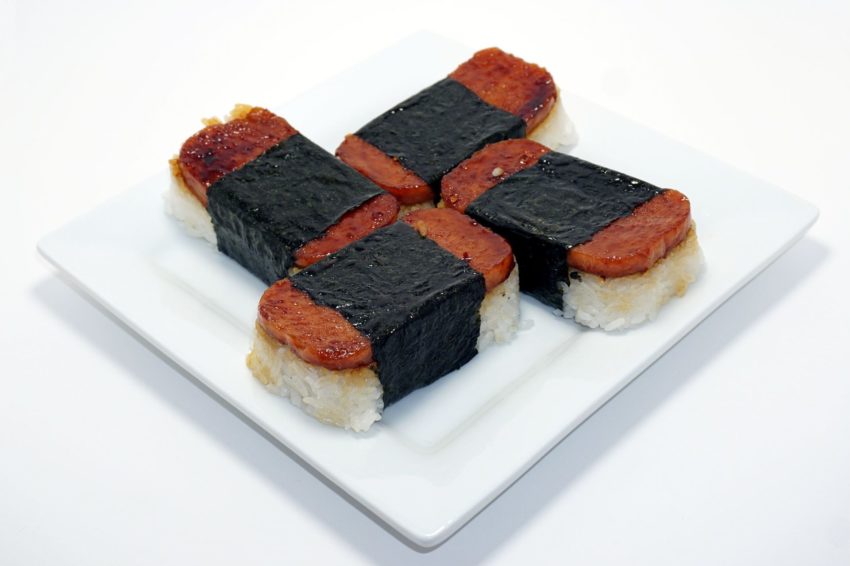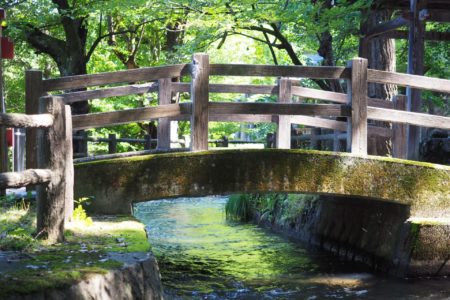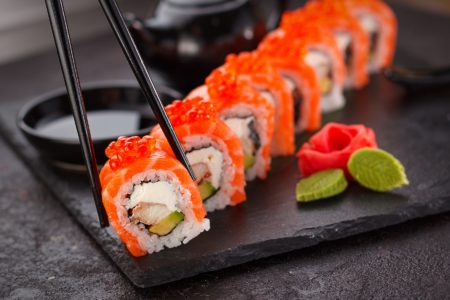Spam Musubi: This is Japanese, Right?

Top Photo: Chris Hackmann licensed under the Creative Commons Attribution-Share Alike 4.0 International license. No changes or modifications. Wikimedia Commons Link
MUSUBI celebrates its 1-year anniversary with a brief look at a beloved food that did not inspire its name. But it sure is tasty!
MUSUBI, The Bridge to Inner Japan (aka the blog which you are reading at this very moment) gets its name from the Japanese word musubi (結び) or “knot”. It also means “connecting” or “union”. There’s a lot more to the story, but you can read that here.
And as the past year has hopefully shown, we at MUSUBI are all about connecting (or bridging). We strive to connect you and those around the world to a different side of Japan. For over one year, we’ve done that through the voices of those living here.
But there is a very similar Japanese word, omusubi (お結び), a synonym for the more commonly-known onigiri (お握り) or “rice ball”. While omusubi is still used within Japan, the derived word “musubi” is perhaps better-known internationally. There’s a certain easy-to-make food that includes it. It’s an unusual case of cross-cultural forces creating a dish that is both Japanese and not. It is:
Spam Musubi
The exact origins of Spam Musubi are disputed, but most versions agree it evolved in the aftermath of World War II, as good-quality meat was scarce and the canned cooked pork become prominent wherever American troops were stationed. One way or another, it became integrated into local cooking, particularly in the Pacific (Hawaii and Guam both have their own takes on it).
Spam Musubi is simple and easy to make. A slice of grilled Spam on top of a block of rice (or sometimes sandwiched between them) and wrapped in nori (dried seaweed). There are some variations(incorporating mayonnaise, teriyaki or soy sauce) but the standard ingredients are always present.
Perhaps the wildest part of the Spam Musubi story is how it has “returned” to Japan. You can find it (in some form) in convenience stores. You can eat it with additions such as egg and tuna mayonnaise. Okinawa has their own spin on it that’s definitely worth a try.
And you can always try making it yourself!
In truth, MUSUBI didn’t get its name from Spam Musubi. But the food kind of sums up what MUSUBI is all about. Japanese culture spreads outward, and returns inward. And we love exploring the many ways it does so.
We at MUSUBI will continue our best to deliver interesting, quality articles about Japan to those everywhere. Whether you’re in Japan now or planning to come some day, we hope you’ll stay on this journey with us.
Thank you for reading MUSUBI for a year! Here’s to many more!
Photo Credits:
Top Photo: Chris Hackmann licensed under the Creative Commons Attribution-Share Alike 4.0 International license. No changes or modifications. Wikimedia Commons Link
All other content (text) created by the original author and © 2021 MUSUBI by Borderlink
RELATED
-

Good Fortune & Great Sights in Aizu
Top photo: Shino on Unsplash Aizuwakamatsu, the Samurai city. When you walk around the small city, you can se… -

Must-Haves: Medicines at the Drugstore
Top Image Courtesy of Kristine Mayor When it comes to first aid in the home, it’s always best to be prepared w… -

Quick Bites: It’s Great to Eat in Japan
Top Photo: drawsandcooks on Pixabay Of all the problems you may encounter moving to Japan, finding something t…
PEOPLE

The MUSUBI Staff
Collaborative works put together by our many talented writers and editors!




